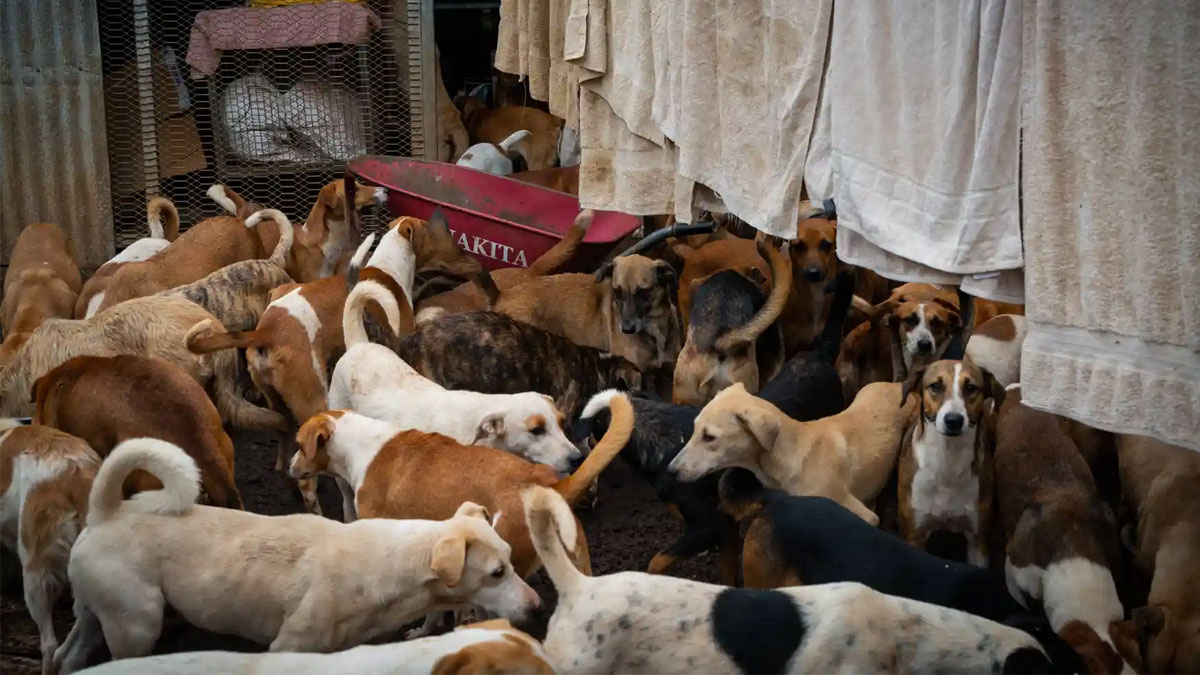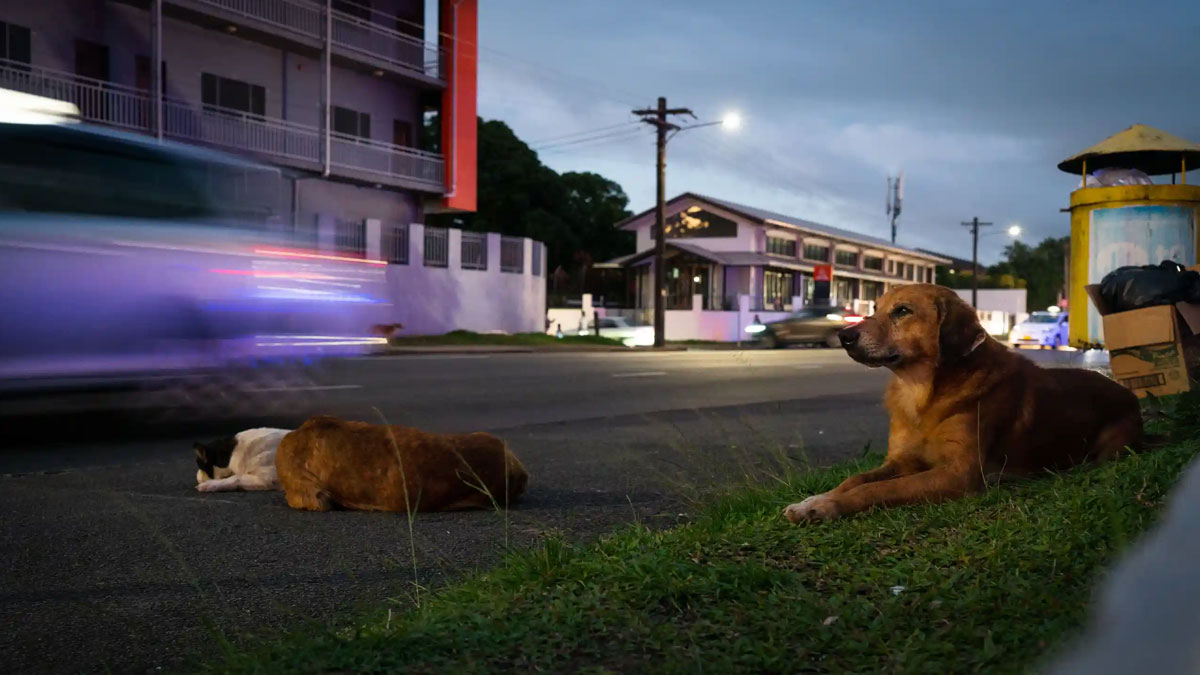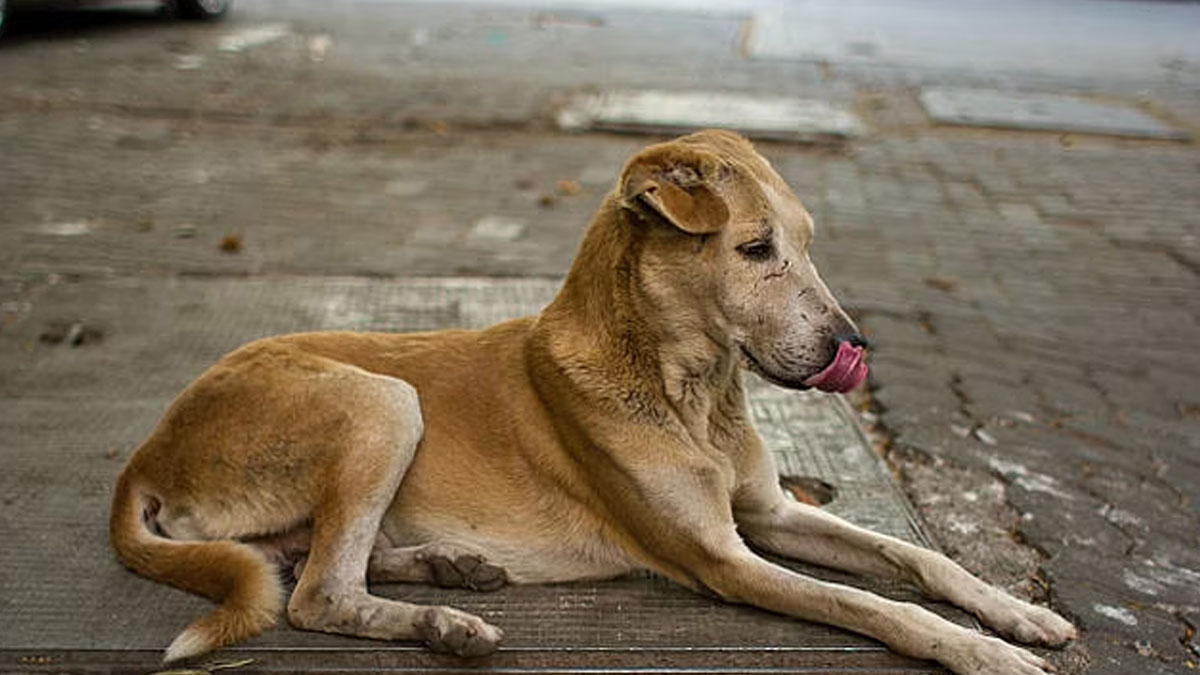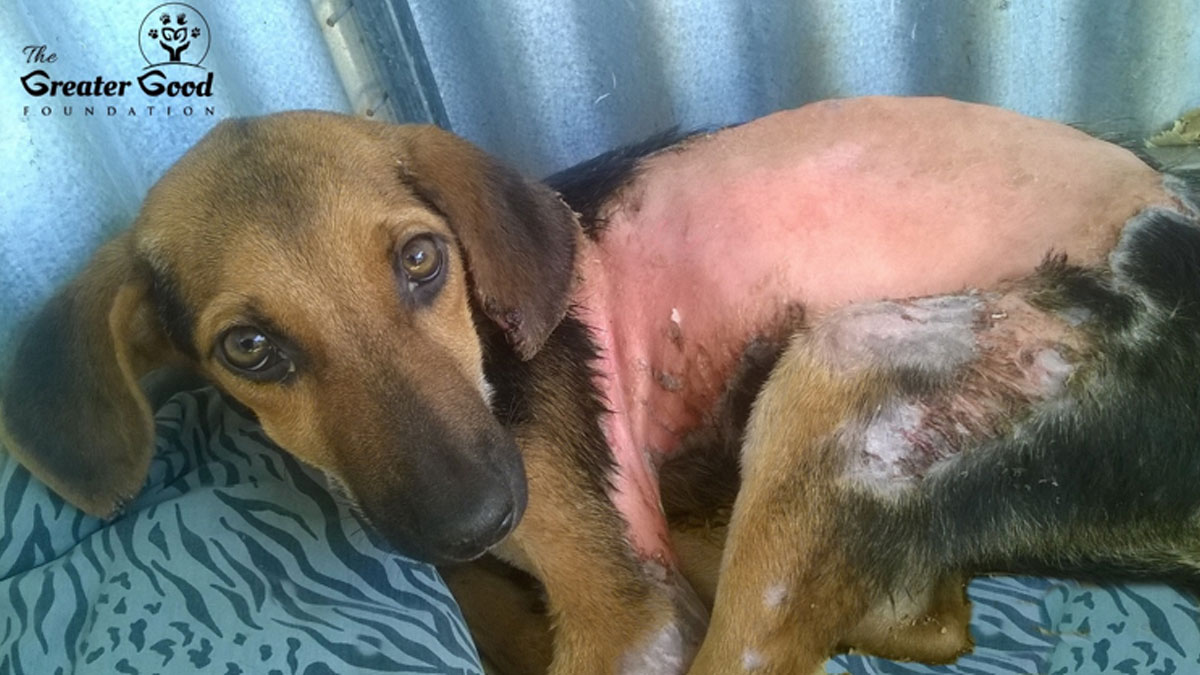
The shortage of practicing veterinarians in Fiji and the high cost of de-sexing by animal welfare organizations are some of the factors that is contributing to the stray dog problem in the country.

The shortage of practicing veterinarians in Fiji and the high cost of de-sexing by animal welfare organizations are some of the factors that is contributing to the stray dog problem in the country.
This was highlighted by the Greater Good Foundation spokesperson Shaheez Khan who says that currently there are only two to three registered practicing vets in Fiji and that most businesses charge people around $300 to 350 for such surgery.
Khan further says the government has neglected the need to address the issue of street dogs and animal welfare more broadly therefore the stray dog population has never been effectively managed.
He says the solution in the past has been to either ignore the problem altogether or embark on midnight poisoning campaigns.
Khan says this is as barbaric as it is ineffective leading to huge public outcries.
Meanwhile, the Co-Founder and Managing Trustee of Animals Fiji Casey Quimby say shortage of vets is a concern and Animals Fiji is in the process of working with the Lautoka City Council on such issues.
She says some of the challenges faced by the organization in addressing these issues are less community engagement, funding, and support from the government.
The Co-Founder also says to address the issue of the high cost of de-sexing, Animals Fiji provides discounts for their services with help and support from donations through fundraising and campaigns.
The Animals Fiji also had de-sexing campaigns with the SPCA Fiji and Pacific Animal Shelter and Hospital to support people who could not afford to de-sex their pets.

An increase in stray dogs has been noticed in parts of Navua, Suva and Nausori where abandoned dogs are seen in towns and areas searching for food and a place for shelter.
This is also becoming a major concern as they sometimes attack people and also live in unhygienic conditions.
The Permanent Secretary for Agriculture Vinesh Kumar says this is because people abandon their dogs when they become of no use to them or lose interest in owning a pet, while some pet owners are not exercising responsible pet ownership, that is, if you have a pet you need to ensure they are well fed and properly looked after.
He says owners need to provide them with the necessary veterinary care when needed if sick, and ensure that they are desexed to prevent them from reproducing and contributing to the stray dog population.
Kumar says the Ministry is working very closely with town and city councils together with animal welfare organisations such as the Society for Prevention of Cruelty to Animals and Animals Fiji in conducting ongoing awareness and trapping programs to capture and desex stray dogs at a local level while the stray animal team conducts awareness and trapping programs in response to public complaints.
He stresses that the Ministry also works with farmers and rural communities in addressing similar dog issues, however in these places, the dogs pose a threat to production animals such as goats, sheep and poultry.
The CEO further says under the Dog Act, all dogs above the age of 6 months should be licensed, the Ministry will be closely monitoring the relevant stakeholders where it has an ongoing stray dog desexing program or Trap, Neuter, and Release program conducted in the Central, Western, and Northern division with Ministry veterinarians conducting surgeries.
He also says if the Ministry vets are unavailable the stray dogs are desexed at private animal clinics such as Animals Fiji, SPCA & Vet Essentials.
Kumar says the Ministry has also collaborated and continues to work with the private sector in supporting and conducting desexing campaigns for both owned and stray dogs such as the outreach campaigns with SPCA and Suva City Council.
The Permanent Secretary also highlighted that the Ministry does not have permanent shelters for stray dogs therefore, they are captured, desexed and returned to the area it was captured from, or available for adoption.
He confirmed that desexing is still being conducted for stray dogs that are captured under the Ministry’s stray dog TNR program and are working closely with towns and city councils across Fiji.

Fiji’s only homeless animal shelter, The Greater Good Foundation says Fiji is developing an international reputation for animal brutality, and it is time for our leaders to make made animal welfare part of their agenda.
The Greater Good is calling for an animal welfare policy which outlaws government and council poisoning programs, provides funding for NGOs to humanely trap, neuter and release programs to control the population of street dogs and cats, sees criminal convictions for deliberate cases of animal cruelty and includes a national education campaign on animal welfare and provides subsidised or free neutering (desexing) of pets and farm animals.
The organization is asking why this issue does not rate a mention by any of the election candidates.
Spokesman, Mohammed Khan says the world watches in horror at stories of dogs poisoned with weed killer, deliberate cane knife injuries including amputations and animals burned alive with boiling water.
Khan says these are abhorrent in other countries but common in Fiji.
He says social media is also documenting pig hunters kidnapping dogs off the streets and from compounds and routinely torturing and starving them.
The Greater Good is calling for political parties to take this growing issue seriously.
Khan says everyone can see the number of homeless, starving and injured animals on the streets and the scale of suffering is unbelievable.
Khan says Fiji’s animal cruelty laws are not enforced and there have been no convictions.
He says due to the lack of proper welfare policy, the government and councils are responsible for deadly baiting campaigns which are conducted under the cover of darkness so no one sees.
Khan says every few months they mount a midnight operation in our main towns and cities, and overnight scores of dogs and cats die an agonizing and slow death.
The Greater Good is calling on the newly elected government to work with Fiji’s animal welfare NGOs to come up with a proper plan to address animal welfare.
He says they are one of a number of NGOs who are trying to tackle the problem with no help from the government.
Khan says SPCA in Suva, Animals Fiji and PASH in the west are all agencies that could do much more if the government took the problem seriously.
Stay tuned for the latest news on our radio stations

